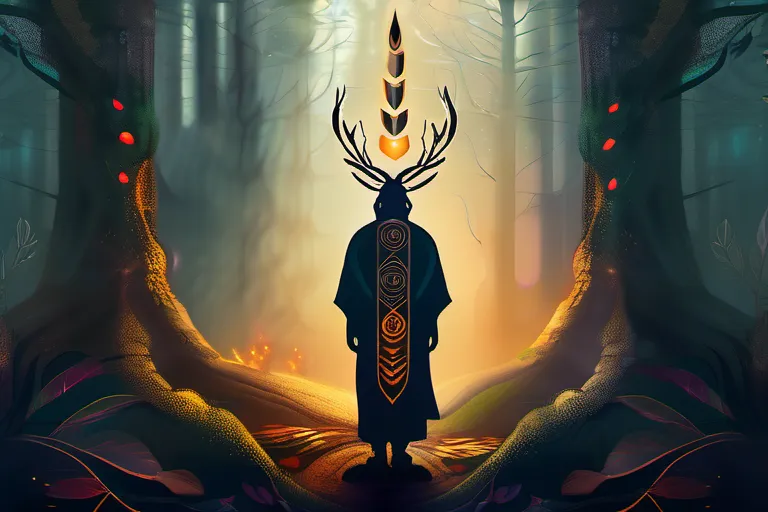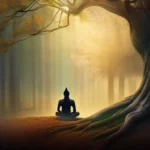Discover the various philosophies, spiritual practices, and worldviews that serve as alternatives to traditional religion.
In today’s diverse and interconnected world, many people are seeking answers beyond the confines of organized religion. This article delves into the fascinating realm of alternative belief systems, providing a comprehensive overview of various philosophies, spiritual practices, and worldviews that serve as alternatives to traditional religion.
The Evolution of Religion and Alternatives
Imagine religion as a grand tree that has stood tall for millennia, offering shelter and guidance to countless souls. But what happens when the world around it changes? When new challenges emerge, and old paths no longer seem clear? Could there be other ways to find meaning, purpose, and connection in life?
The evolution of religion has been a dynamic process, adapting to societal shifts over time. From the ancient civilizations of Mesopotamia and Egypt to the modern era, religious practices have transformed along with the societies that adopted them. Yet, as we enter an age marked by rapid technological advancement and shifting cultural norms, some find themselves questioning the very foundations of traditional religion.
Consider the metaphor of a river: it flows through history, carving new paths over time. Just as rivers adapt to changing landscapes, so too have alternatives to religion emerged, responding to contemporary challenges. These alternatives offer fresh perspectives on life and morality, challenging us to think beyond the boundaries set by traditional beliefs.
From existentialism’s exploration of individual existence in a seemingly indifferent universe, to humanism’s emphasis on the inherent dignity and worth of every person, these philosophies provide alternative frameworks for understanding our place in the world. Each offers unique insights, encouraging us to question, reflect, and perhaps find new ways to navigate life’s complexities.
Philosophies: Existentialism, Humanism, and More
Imagine stepping out of the familiar shadows cast by traditional religion, into the bright, uncharted territory of existentialism and humanism. These philosophical perspectives offer a stark contrast to the comfort and certainty often provided by organized faiths. Have you ever wondered if your life has meaning beyond what you’ve been taught? Are you curious about finding purpose through your own choices and experiences?
Existentialism, in particular, challenges us to confront the fact that we live in a universe without inherent meaning or order. This can be daunting but also liberating, as it invites individuals to create their own path and make authentic choices. Existentialists like Jean-Paul Sartre emphasized personal freedom and responsibility, suggesting that our lives are defined by what we do with them rather than following prescribed religious doctrines.
Humanism, on the other hand, focuses on human values and potentialities. It is deeply rooted in the belief that humanity can be improved through education, science, and reason. This perspective encourages individuals to lead ethical lives, fostering a society based on mutual respect and understanding. Think about it: if religion often tells you how to live, what would it mean to base your life choices solely on empathy and compassion for others?
Both existentialism and humanism offer powerful alternatives that invite us to explore the depths of our own existence. They provide frameworks for self-discovery and personal growth, encouraging individuals to question and redefine their beliefs based on individual experience rather than institutional dogma.
By delving into these philosophical perspectives, you might find new ways to navigate life’s complexities without the reliance on traditional religious structures. These alternatives not only challenge us but also inspire a sense of purpose that comes from embracing the unknown and creating our own meaning in this world.
Spiritual Practices: Meditation, Yoga, and Mindfulness
Imagine stepping into a quiet room, where your mind becomes a canvas for introspection and peace. Meditation, yoga, and mindfulness offer profound ways to explore the depths of your inner world without traditional religious dogmas. How does the practice of meditation help you find clarity amidst life’s chaos? Picture sitting in stillness, focusing on your breath as if it were a bridge connecting your soul to the divine within. Through this simple act, you begin to cultivate a deeper understanding of yourself and the universe around you.
Yoga, often seen as a physical exercise, is so much more than that. It’s a holistic practice that integrates body, mind, and spirit. Each pose is like a journey through your own being—stretching not just muscles but also emotions and thoughts. How does embracing yoga help you navigate the complexities of life with greater ease and grace? Imagine moving through asanas (poses) with intention, finding strength in each inhale and release. This practice can be seen as a metaphor for facing challenges and finding harmony within.
Mindfulness, on the other hand, encourages presence and awareness in every moment. It’s about being fully engaged with what you are doing right now—whether it’s eating, walking, or simply breathing. By practicing mindfulness, you learn to detach from judgments and find peace in the present. Could this be a way to live more authentically and connect deeply with your experiences? Think of mindfulness as a lens that sharpens your perception, allowing you to see beyond surface-level realities and into the essence of life.
These spiritual practices serve as powerful tools for personal growth and transformation. They offer a pathway to self-discovery and inner peace without the need for traditional religious structures. How might these practices enrich your daily life? By integrating meditation, yoga, and mindfulness into your routine, you can unlock new levels of understanding and connection with yourself and others. These are not just techniques but gateways to a more fulfilling and purposeful existence.
New Age Movements: Theosophy, Ufology, and Crystal Healing
Have you ever wondered what lies beyond the traditional religious frameworks that have shaped our worldviews for centuries? The rise of new age movements like Theosophy, ufology, and crystal healing offers a fascinating exploration into alternative spiritual landscapes. These movements have attracted countless individuals seeking to delve deeper into uncharted territories of belief and practice.
Imagine stepping through a portal into a universe where ancient wisdom meets modern technology, and the boundaries between science and spirituality blur. Theosophy, for instance, invites us to explore a metaphysical cosmos that harmonizes Eastern philosophy with Western mystical traditions. This movement posits the existence of one divine essence that permeates all life forms, leading practitioners to seek enlightenment through knowledge and inner development.
Ufology, on the other hand, opens our minds to the possibility of extraterrestrial life and encounters with beings beyond human comprehension. The quest for evidence and understanding in this field parallels the spiritual journey, as believers search not only for physical proof but also for a broader meaning behind cosmic phenomena.
Crystal healing, a practice that utilizes minerals believed to possess metaphysical properties, offers another intriguing approach. It suggests that crystals can resonate with human energy fields, promoting balance and well-being. This holistic method invites us to consider the interconnectedness of all living things and our role within this intricate web of life.
These new age movements challenge us to question our perceptions and explore a diverse array of beliefs and practices. They offer a refreshing alternative to rigid religious doctrines, inviting individuals to forge their own paths through the labyrinth of spiritual possibilities.
Are you ready to embark on this journey into the realms of Theosophy, ufology, and crystal healing? What new insights might these movements bring to your understanding of the world around us?
Secular Humanism and Atheism: Alternatives with a Focus on Reason
Exploring Alternatives to Religion: A Comprehensive Guide
In our quest for understanding and meaning, we often turn to religion as our guide. But what if that path doesn’t resonate? What other avenues can we explore?
Secular Humanism and Atheism: Two distinct yet related philosophies offer a different perspective on the world. These beliefs emphasize reason, ethics, and evidence over faith.
Let’s delve into what these alternatives entail. Do you often find yourself questioning the very foundations of your beliefs? If so, secular humanism might just be the path for you. This philosophy focuses on human values, rights, and well-being, believing that we can build a better society through rational thought and cooperation.
What Does Secular Humanism Look Like in Practice?
Ethics: Emphasizes the importance of moral actions based on human needs and consequences rather than divine commandments.
Social Justice: Advocates for equality, freedom, and human rights as essential components of a just society.
Science and Reason: Sees scientific inquiry and rational thinking as the best tools to understand the world and improve our lives.
Now, let’s consider atheism. While atheism simply means a lack of belief in gods or supernatural beings, it doesn’t preclude a rich spiritual life. Many atheists find meaning through human connection, personal growth, and the pursuit of knowledge. The key here is finding purpose without relying on religious doctrines.
Can you imagine building your own framework for morality and ethics? This can be both liberating and challenging. Atheism often encourages individuals to create their own value systems based on reason and human experience, rather than inherited dogma.
Why Choose These Paths?
Freedom: Without the constraints of religious doctrine, you have the freedom to shape your beliefs and values in ways that align with your personal experiences and reasoning.
Ethical Responsibility: Both secular humanism and atheism promote active involvement in ethical issues, encouraging individuals to make a positive impact on their communities.
As we navigate the complexities of life, these philosophies offer powerful alternatives that emphasize reason, ethics, and personal responsibility. They invite us to question, to explore, and to build our own path to fulfillment and meaning.
Which path do you think aligns with your values?
This exploration into secular humanism and atheism is just the beginning. In the next chapter, we’ll guide you through making informed decisions about your spiritual path based on the insights gained here.
Conclusion: Choosing Your Own Spiritual Path
As we conclude our exploration into alternatives to traditional religion, you might find yourself standing at a crossroads, contemplating your own spiritual path. Have you ever wondered if there’s more than one way to find meaning in life? How about considering that your spiritual journey could be uniquely yours?
‘Can’t I just stick with the traditions passed down through generations?’ You might ask. But is tradition enough when faced with a rapidly changing world? Isn’t it time to question and evolve, much like a river shaping its course over centuries?
Secular humanism and atheism offer frameworks for understanding life without divine intervention. But what about those who seek something more grounded in the tangible reality of our existence? Is there room for both reason and wonder?
- In this chapter, we’ll explore the idea that your spiritual path is a personal journey.
- We’ll discuss how embracing various philosophies can enrich your life and offer new perspectives on what it means to be human.
- Finally, we’ll guide you through making informed decisions about your own beliefs based on the information presented in our comprehensive guide.
‘How do I choose?’ you might ask. The answer lies in understanding that there’s no one-size-fits-all solution. It’s like choosing a map to navigate an unfamiliar landscape; sometimes, the best route is not clear until you try different paths and see what works for you.
Remember, your spiritual path is a lifelong journey of discovery. Embrace the process, explore new ideas, and be open to change. After all, life is a grand adventure, and every turn brings a new vista to behold. Will you take that next step on your own path?
Conclusion
 Ultimately, the choice of whether or not to embrace an alternative to religion is a deeply personal one. By understanding the unique aspects and values of these belief systems, individuals can make informed decisions about their own spiritual paths.
Ultimately, the choice of whether or not to embrace an alternative to religion is a deeply personal one. By understanding the unique aspects and values of these belief systems, individuals can make informed decisions about their own spiritual paths.











